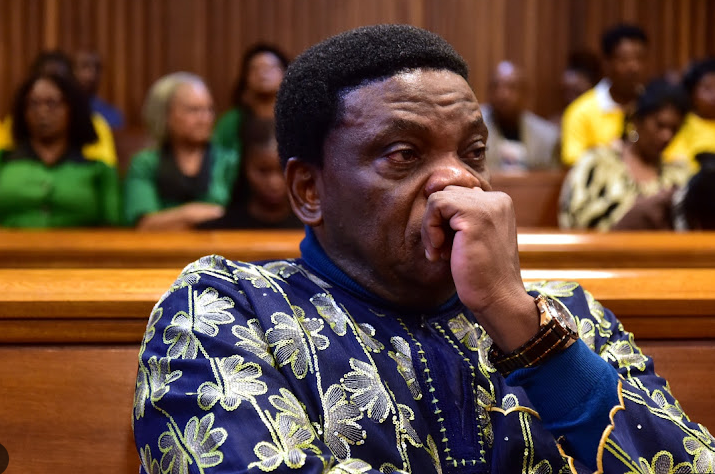News
Omotoso Case Far From Over as NPA Eyes Supreme Court of Appeal Challenge

Omotoso’s Legal Battle Continues as NPA Prepares Next Appeal
The long-running saga surrounding Nigerian televangelist Timothy Omotoso is far from over. After a high-profile acquittal earlier this year, the National Prosecuting Authority (NPA) is now seeking permission to take the case to the Supreme Court of Appeal in Bloemfontein, arguing that serious legal errors may have marred the original trial.
Next week, the matter returns to the Gqeberha High Court, where the state will ask the court to reserve key questions of law a step that could open the door to a fresh appellate review. Omotoso’s attorney, Peter Daubermann, has already stated he will oppose the application, insisting the case should be left to rest.
Background: A Trial Spanning Seven Years
The Omotoso trial began in 2018 and involved a staggering 63 charges, including rape, human trafficking, sexual assault, and racketeering. The case revolved around allegations that young women were recruited to work for Omotoso’s Jesus Dominion International Church and subsequently exploited.
In April 2025, Judge Irma Schoeman acquitted Omotoso and his co-accused, Lusanda Solani and Zukiswa Sitho, citing a lack of evidence beyond a reasonable doubt. The judgment was highly critical of the state’s cross-examination and highlighted what the court described as “poor quality” prosecutorial efforts.
Despite the acquittal, public outrage has remained palpable, with many South Africans expressing frustration over the perception that justice was not fully served. Social media users have debated the challenges of proving sexual exploitation cases, the burden on survivors, and the complexity of criminal procedure in high-profile trials.
The State’s Strategy: Challenging Questions of Law
In court papers, the NPA outlined six legal questions it wants the High Court to consider, including whether:
-
The trial court correctly assessed evidence and applied the law.
-
Patterns of sexual exploitation were appropriately treated as “similar fact evidence.”
-
Prosecutorial conduct was evaluated properly.
-
Racketeering elements were correctly interpreted.
-
Evidence from complainants was wrongly dismissed for lack of corroboration despite supporting testimony.
Deputy director of Public Prosecutions, Adv Joel Sesar, argued that the trial court failed to properly evaluate evidence and provide detailed factual findings, potentially curtailing the state’s right to appeal under the Criminal Procedure Act.
“The evidence pointed to repeated assaults over a long period involving numerous complainants, showing a clear modus operandi,” Sesar said.
Potential Path to the Supreme Court of Appeal
If the High Court grants the application, the NPA will be able to challenge specific legal findings at the Supreme Court of Appeal. This could lead to a fresh hearing where a panel of judges will determine whether the original trial court erred in law.
Omotoso’s Other Legal Troubles
Complicating matters further, Omotoso was arrested in East London on May 10, 2025, for allegedly violating South Africa’s Immigration Act after being declared a “prohibited person.” However, he was released two days later on a technicality when the magistrate found authorities had failed to bring him before court within 48 hours.
Omotoso subsequently filed for an urgent review of his prohibited status. The home affairs department has vowed to challenge this decision, claiming the magistrate erred in releasing him. Omotoso has since left South Africa, adding another layer of complexity to ongoing legal proceedings.
Public Reaction and Cultural Context
The Omotoso case has been one of the most closely watched trials in the Eastern Cape, drawing national attention and sparking heated public debate about religious influence, gender-based violence, and accountability for powerful figures. Many advocates argue that the appeal process is crucial to ensuring justice for survivors and clarifying legal standards for complex cases involving sexual exploitation and human trafficking.
As South Africans await the High Court’s ruling next week, the case serves as a reminder of the challenges in prosecuting high-profile crimes, balancing procedural fairness with public demand for accountability.
{Source: IOL}
Follow Joburg ETC on Facebook, Twitter , TikTok and Instagram
For more News in Johannesburg, visit joburgetc.com



























